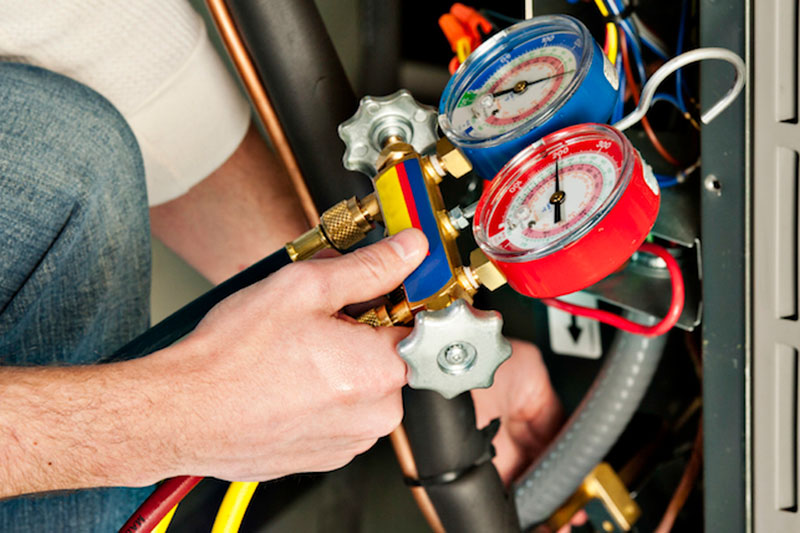
You might not think often about how your air conditioner operates, but it relies on refrigerant to keep your house cold. This refrigerant is subject to environmental laws, as it contains chemicals.
Subject to when your air conditioner was put in, it may use R-22, R-410A or R-32 refrigerant. We’ll go over the differences and which air conditioner refrigerants are being phased out in Beaverton, as well as how these phaseouts have on influence on you.
What’s R-22 and Why Is It No Longer Being Made?
If your air conditioner was added before 2010, it likely has Freon®. You can discover if your air conditioner has it by reaching us at 971-245-2459. You can also examine the name plate on your air conditioner condenser, which is situated outside your home. This sticker will contain info on what type of refrigerant your AC needs.
Freon, which is also known as R-22, contains chlorine. Scientists consider this chemical to be damaging to the earth’s ozone layer and one that prompts global warming. The Environmental Protection Agency, which controls refrigerants in the United States, outlawed its manufacture and import in January 2020.
I Have a R-22 Air Conditioner. Should I Replace It?
It differs. If your air conditioning is cooling as designed, you can continue to run it. With yearly air conditioner maintenance, you can expect your AC to last around 15–20 years. However, the Department of Energy notes that substituting a 10-year-old air conditioner could save you 20–40% on annual cooling costs!
If you don’t replace your air conditioner, it can lead to difficulties if you have to have air conditioning repair down the road, specifically for refrigerant. Repairs may be pricier, since only small amounts of recycled and reclaimed R-22 is accessible.
With the end of R-22, most new air conditioners now have Puron®. Also called R-410A, this refrigerant was made to keep the ozone layer healthy. Since it needs a different pressure level, it doesn’t work with air conditioners that rely on R-22 for cooling.
However, Puron still has the likelihood to contribute to global warming. As a consequence, it may also sometime be discontinued. Although it hasn’t been disclosed yet for residential air conditioners, it’s expected sometime this decade.
What Refrigerant Will Take Over R-410A?
In preparation of the phaseout, some companies have started using R-32 in new air conditioners. This refrigerant ranks low for global warming likelihood—around one-third less than R-410A. And it also lowers energy expenditure by approximately 10%, according to the Intergovernmental Panel on Climate Change’s Fourth Assessment Report. That’s savings that might be passed on to you through your utility expenses.
All Solutions Heating & Cooling Can Help with All Your Air Conditioning Needs
In summary, the modifications to air conditioner refrigerant probably won’t impact you very much until you need repairs. But as we went over earlier, refrigerant-related repairs can be more expensive due to the low levels on hand.
Not to mention, your air conditioner often breaks down at the worst time, frequently on the muggiest day when we’re experiencing a lot of other appointments for AC repair.
If your air conditioner requires a discontinued refrigerant or is aging, we advise installing a new, energy-efficient air conditioner. This ensures a trouble-free summer and may even reduce your cooling costs, especially if you get an ENERGY STAR®-rated system. Plus, All Solutions Heating & Cooling offers many financing programs to make your new air conditioner even more affordable. Contact us at 971-245-2459 to get started now with a free estimate.



